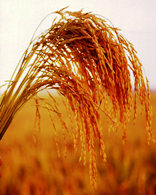 The roll out of the proposed Goods and Service Tax (GST) will push prices of essential commodities like atta (flour), maida, vanaspati ghee, mustard oil, tea, arhar dal and moong dal by 5.5-6 per cent.
The roll out of the proposed Goods and Service Tax (GST) will push prices of essential commodities like atta (flour), maida, vanaspati ghee, mustard oil, tea, arhar dal and moong dal by 5.5-6 per cent.
The prices of black gram, moong and rice would go up by 7.5-8 per cent. Besides, prices of plastic footwear are set to go up by 1.7 per cent and that of paper by 2.53 per cent and exercise books by 6.76 per cent under the new tax regime.
These apprehensions have been raised in a study conducted by the tax research unit of the commercial department of the state finance department.
There would be decrease in price of leather footwear, ready made garments and made up textiles as these are excisable goods. Presently, excise duty and Central Sales Tax (CST) are collectable on these goods.
Under the GST regime, CST and excise duty shall be subsumed and input tax credit will be available on the sale of these commodities. Hence, it is found that the price of these commodities will decrease.
There will be three rates under GST- lower rate of six per cent and a standard rate of 10 per cent on goods and eight per cent for services both for Central GST and State GST. The combined GST rates would be 12 per cent, 20 per cent and 16 per cent. It is assumed that the essential commodities will be placed in the lower tax rate of 12 per cent.
While service tax of 10.3 per cent is presently leviable on 25 per cent of transportation cost, the Integral GST on such transportation will be 16 per cent on total transportation cost.
Since entry tax in Orissa is not going to be subsumed in GST, the tax research unit in its survey categorized the goods in four categories- excisable and scheduled goods; non-excisable and scheduled goods; excisable and non-scheduled goods and non-excisable and non-scheduled goods.
From the market survey, it has been found that the profit margin varies from commodity to commodity. For instance, in case of vanaspati ghee, mustard oil, arhar dal, moong, black gram, palm oil, suji, maida, besan and atta, the wholesaler's margin is ascertained as two per cent while the retailer's profit margin for items like vanaspati ghee, mustard oil, palmoline oil and pulses is three per cent.
Similarly, for items like plastic footwear, the wholesaler's profit margin is ascertained at 6.6 per cent and the same for leather footwear is 12.6 per cent whereas the retailer's profit margin for footwear is ascertained at 15 per cent.







 © 2025
© 2025